February 10, 2011
Designs by us, modified by nature
Bizarre Central Texas weather is the master of garden design. This Agave striata made it.
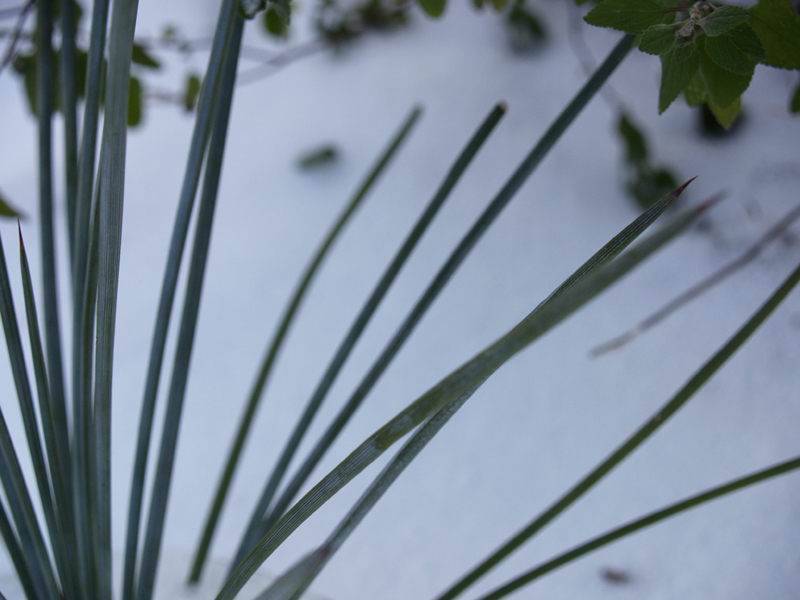
But these may be the last pictures of my beloved Agave celsii.
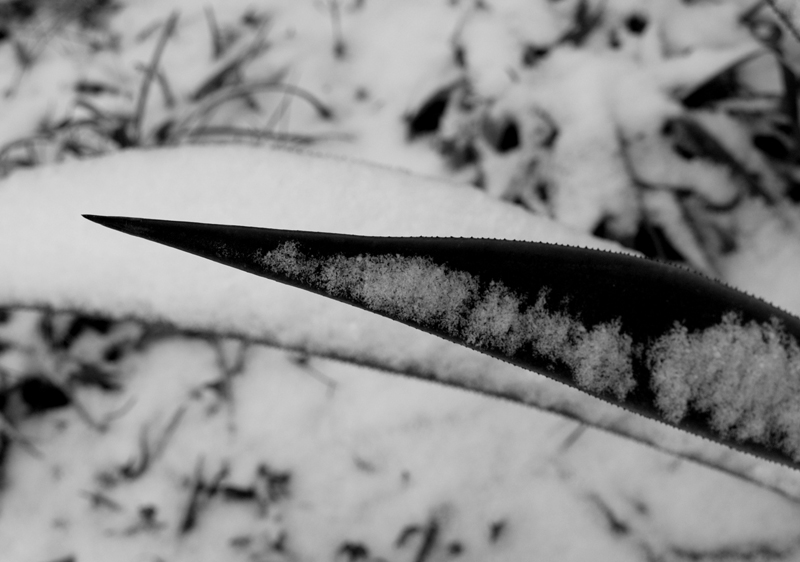
It’s too early to tell.
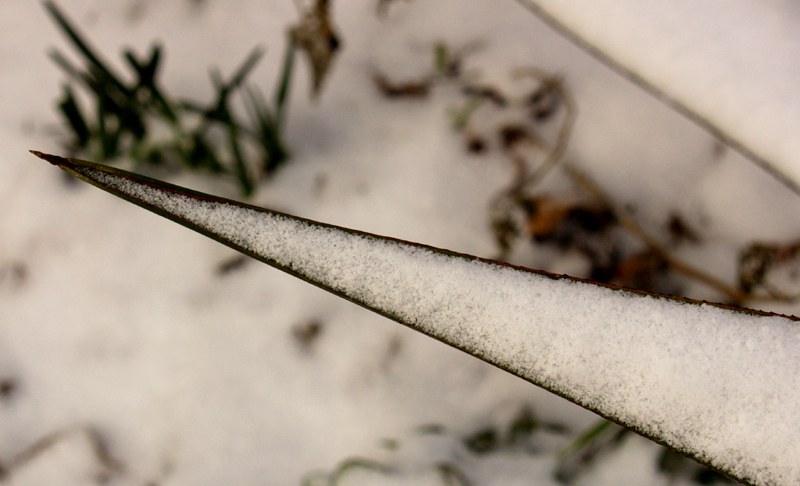
This growth does seem to be turgid, but the rest of the leaves are in various states of mush.
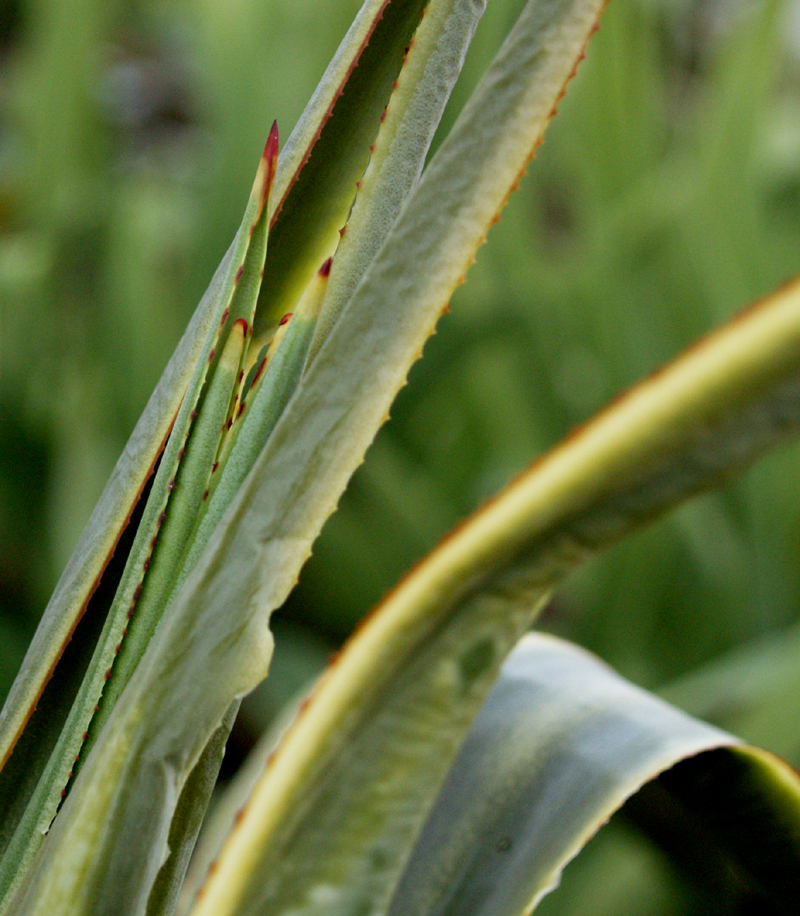
Last year, it lost several bottom leaves, which didn’t harm its overall appearance. This may have been too much, though.
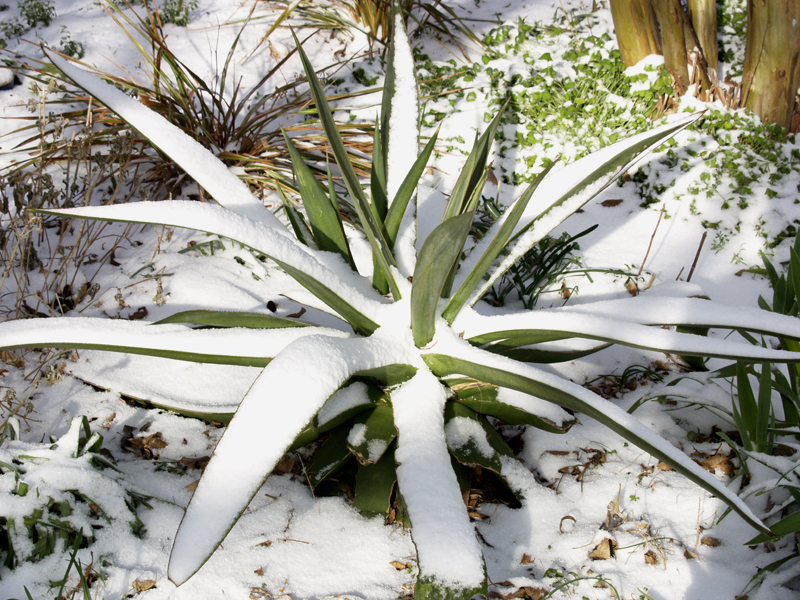
And it’s a bit early to diagnose the Dianella tasmanica ‘Variegata’ (variegated flax lily) beyond. But it doesn’t look promising.
You’d think I’d learned my lesson last year. But NO! I love the dianellas so much that I just had to have more. And you know what, I’ll probably try again!
By the way, I’ve already heard from viewers about their cycads. Mine is snow-white, too, as it was last year. Once things warmed up last spring, it grew a new set of fronds. So I’ll wait, once again, to clean it up and hope for the best.
Native heartleaf skullcap (Scutellaria ovata) hates summer as much as it loves winter.
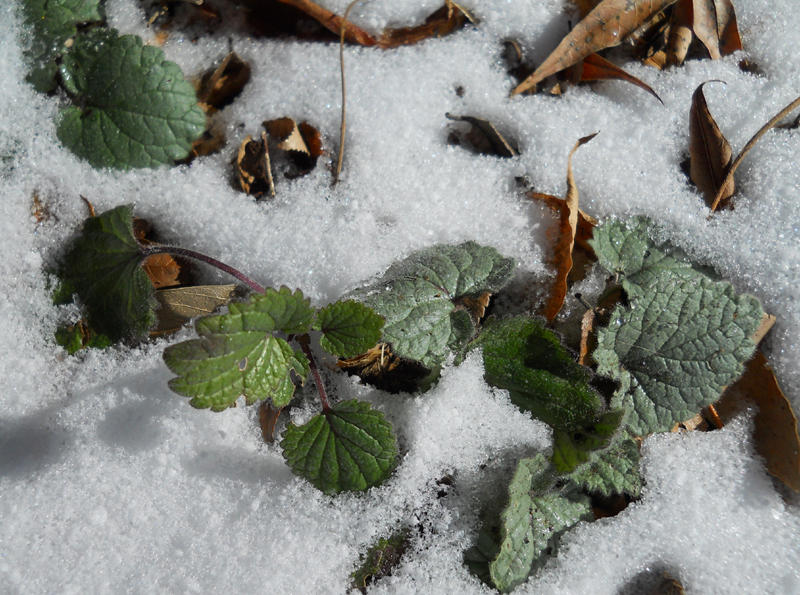
Weather “events” like drought, extended freeze, and Texas-style monsoons rule us in the end. Sometimes we can go for years with a plant before extreme conditions send us back to the drawing board.
Ultimately, that’s where it starts. If we have a good design, occasional plant change-outs simply give us the “push” we need to try something new. So, this week on CTG, Tom meets with Sharon St. John, Horticulture and Landscape Design Coordinator at Austin Community College. She introduces us to ACC’s fabulous continuing education classes geared for designers and horticulturists.

Plus, she illustrates a few design concepts and how to adapt to your garden. Note: at ACC’s classes, you can learn how to make renderings like this!


Well, a few weeks ago, I jumped the gun on Daphne’s question of the week from viewer Joan Wade. In case you missed it, it’s excellent, since I often hear from viewers that their good-choice roses aren’t doing well. Almost always, it’s due to lack of enough sun.
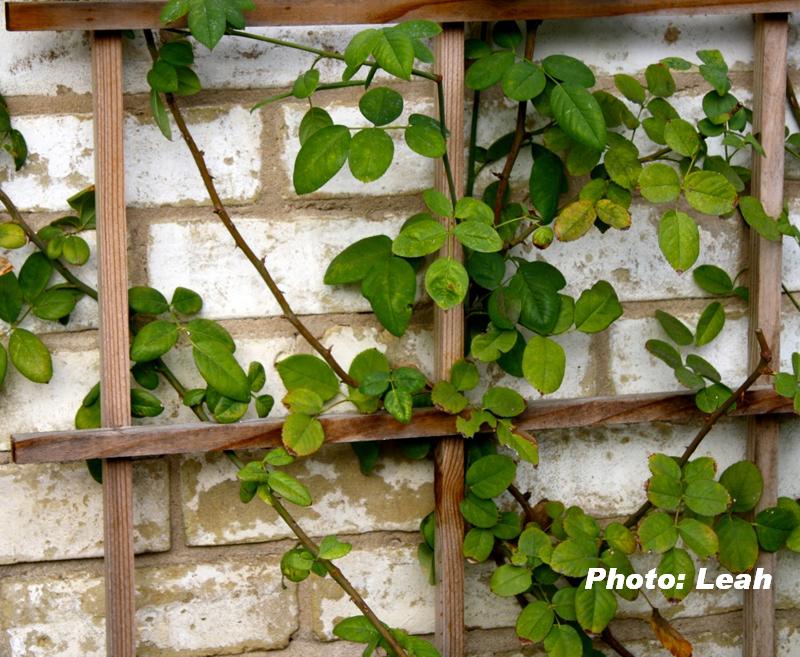
Joan’s trimmed back the oak tree that was creating too much shade. She scratched in a compost/rose mix and drenched with liquid seaweed with iron. Already, they’re doing great. They did get burned a bit in last week’s extended freeze, as did my roses, but they’ll rally. In the next few weeks, we can prune and feed our roses to stimulate new healthy growth. Note: Joan reports that her roses are climbing versions of shrub roses, which are more appropriate for her narrow space.
Daphne’s featured plant is Mutabilis, one of the Earth-Kind roses.
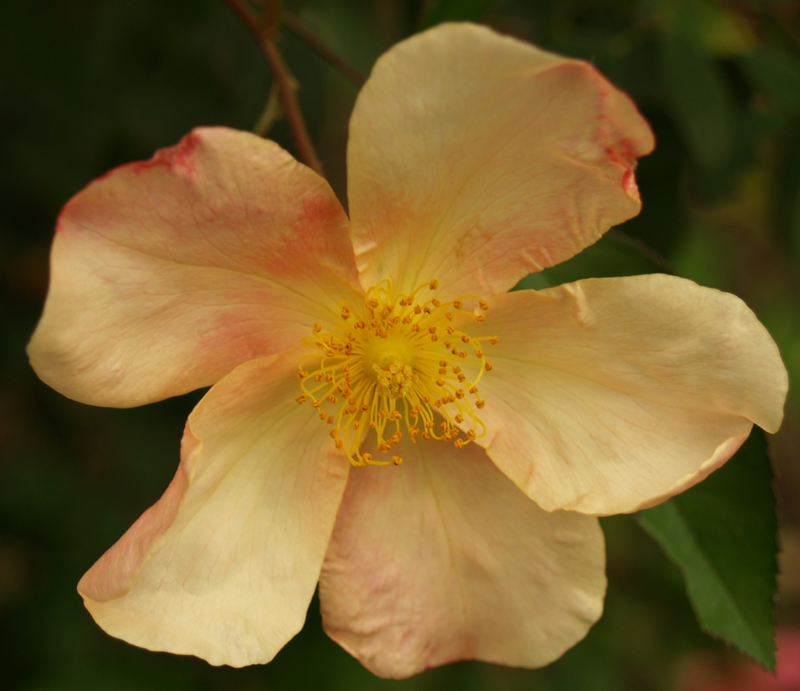
If you a have a large space and need a beautiful screen, this shrub rose is the one for you. No need to bother with fertilizer, either. For years, I’ve just added mulch to mine, and it performs like a champ even though it gets only 4 or 5 hours of sun (more is certainly recommended!) There are smaller Earth-Kind roses that are just as easy to grow. Really, you can have roses without the hassle!
On tour, we visit herbalist Ellen Zimmermann’s garden, where she combines roses, herbs, perennials and annuals that are beneficial to us and our wildlife. Check out her classes and fabulous herbal insight at the Austin School of Herbal Studies. You can even see why you should treasure those cleavers showing up in your garden! Also, Ellen’s got a new Apprentice Program starting in March; a great opportunity to study with her.
If you don’t want to use your weeds, but just get rid of them, this week Sweetpea Hoover explains what to do.
Since we’re planning our summer vegetable beds, don’t miss the best vegetable plant sale around at Sunshine Community Gardens on Saturday, March 5, from 9:00 am to 2:00 pm. They always have hard-to-find varieties along with standby faves.
This Saturday, Feb. 12, the Travis County Master Gardeners host a free workshop on planting your vegetable garden. If you miss that one, these busy bees have something just about every weekend!
By now, you’re sick of snow pictures, but just hang on for a few more!


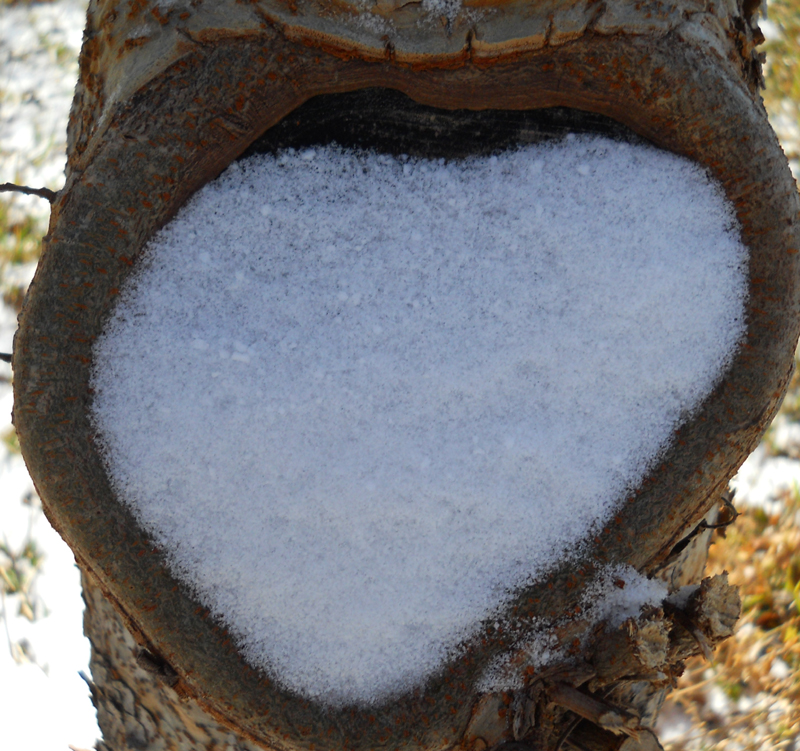
Until next week, happy Valentine’s Day early! Linda

